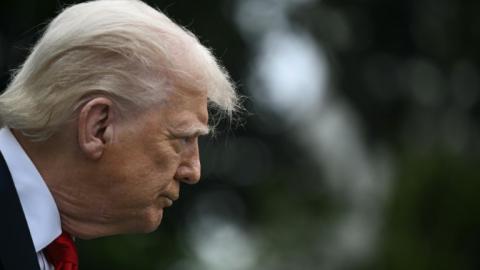
Film industry figures around the world are reacting with alarm after President Donald Trump announced plans to impose a 100% tariff on all movies produced outside the United States.
In a Truth Social post published Sunday night, Trump called foreign productions a "national security threat" and said the U.S. movie industry is "dying a very fast death" due to international competition incentivized by foreign governments. He then authorized the Department of Commerce and the U.S. Trade Representative to begin implementing the tariffs, claiming that "other nations have been stealing the movie-making capability of the United States" and that "Hollywood is being destroyed."
Industry experts and global producers criticized the idea, describing it as unworkable and harmful. "It's insane," one veteran UK producer told Deadline. "So U.S. companies can only make U.S. films? James Cameron can't make Avatar overseas? Who pays the tariffs? Leading independent distributors would all be out of business if it's them."
Critics are also pointing to the fact that such tariffs would raise costs and disrupt distribution models across the board, as studios and streamers frequently produce content overseas to benefit from tax incentives and access to global talent. A veteran international seller also consulted by Deadline raised the question: "would a foreign-shot production ever see the light of day in America? Would it be taken off U.S. streaming services?"
In another report by TIME, William Reinsch, economic adviser at the Center for Strategic and International Studies, also questioned the reasoning behind the decision, noting that the U.S. film industry has a trade surplus and is one of the country's most successful service exports. In 2023, the Motion Picture Association reported $22.6 billion in exports and a $15.3 billion trade surplus. "We have a lot more to lose than to gain," Reinsch said.
A French distribution vet also echoed Reinsch's sentiment to Deadline:
"He will kill the U.S. industry quicker as this will increase the cost of U.S. films that already weren't selling well internationally. Creating an incentive for shooting in the U.S. would have been smarter but I'm not sure he has that much intelligence"
Foreign governments also reacted to the news with shock. Australia's home affairs minister, Tony Burke, said his country would "stand up unequivocally" for its screen sector, while New Zealand Prime Minister Christopher Luxon emphasized the need to see the details first. British parliamentarian Caroline Dinenage warned that Trump's move could damage American investments in UK film production:
"Making it more difficult to make films in the UK is not in the interests of American businesses. Their investment in facilities and talent in the UK, based on US-owned IP, is showing fantastic returns on both sides of the Atlantic. Ministers must urgently prioritise this as part of the trade negotiations currently underway"
© 2025 Latin Times. All rights reserved. Do not reproduce without permission.






